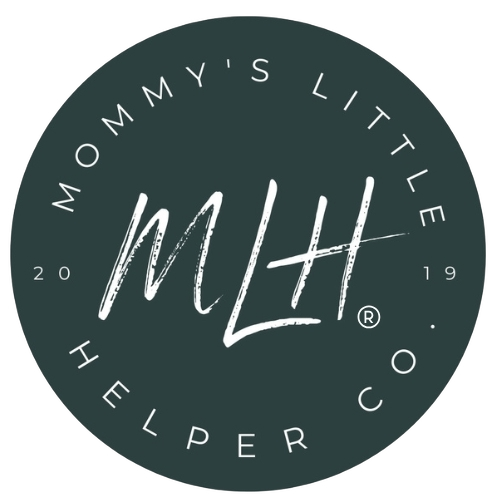
How to Encourage Toddlers to Say Sorry and Mean It
Let’s be honest, teaching toddlers to say sorry can be tough. We’ve all been there. Your little one snatches a toy, hits a sibling, or knocks down a block tower, and you find yourself saying, “What do you say?” while waiting for a heartfelt apology. Instead, you get a quick “sorry,” a blank stare, or a full-on pout.
It can be frustrating when you’re trying so hard to raise a kind and empathetic child. You want them to understand that saying sorry isn’t just about using the right words, but about feeling genuine care for others. The truth is, toddlers don’t always know what an apology really means. They need our patience, love, and gentle guidance to make the connection.
As a mom, I know how much we all want to get this right. So let’s talk about some simple, positive parenting ways to help our toddlers say sorry and actually mean it.
Start With Feelings, Not Words
Before toddlers can truly apologize, they need to understand emotions. Empathy is what makes a real apology possible. When they learn how others feel, they begin to care about their actions.
When something happens, take a moment to name the feelings involved. You can say:
“Look, your friend looks sad because you took the toy. How do you think she feels?”
Helping your child connect emotions with actions teaches them why saying sorry matters. You can even practice this during playtime. While your child is in their learning tower helping you cook, talk about feelings in a calm and fun way. These little moments help build emotional understanding naturally.
Be the Example
Our kids learn more from what we do than what we say. If we want them to apologize sincerely, they need to see us doing it too.
When I lose patience, I take a breath and say:
“Mommy’s sorry. I was frustrated, but I shouldn’t have spoken that way.”
It’s simple, but powerful. They see that grown-ups make mistakes too, and that apologizing is not something to be ashamed of. It shows them that being kind and honest is always the right thing to do.
Don’t Force an Apology
It can be tempting to say, “Say sorry right now!” especially when others are watching. But a forced apology often feels meaningless. Toddlers need to calm down before they can understand what just happened.
You can guide them gently by saying:
“I can see you’re upset. Let’s take a few deep breaths first.”
Once they are calm, you can talk about what went wrong and how to make things right. This helps them process emotions instead of reacting under pressure. It also shows them that it’s okay to take time to think about their feelings before speaking.
Practice Through Play
Playtime is one of the best opportunities for toddlers to learn social skills. Whether they are on their play gym or sharing toys with a friend, these moments are full of learning.
If your child accidentally bumps someone or grabs a toy, pause and talk about it in a calm voice. You might say:
“That made your friend sad. What could we do to help her feel better?”
By turning small conflicts into learning moments, you’re helping your child see that kindness is more than a word. It’s something we show through our actions.
Teach How to Make Things Right
A real apology is more than just saying sorry. It means trying to fix what happened. Encourage your child to take simple actions that show care. Maybe they can help rebuild a block tower, give a hug, or offer to share another toy.
You can say:
“You hurt your brother’s feelings. What can we do to make him feel better?”
This teaches your child to take responsibility and helps them understand that making things right feels good.
Celebrate Their Efforts
Toddlers won’t always get it right, but that’s okay. The goal is to help them practice, not to expect perfection. When your child makes an effort to apologize or repair a situation, celebrate it.
“That was really kind of you to say sorry. I can tell you wanted to make your friend feel better.”
Praising effort helps them connect positive actions with good feelings. Over time, they’ll start to choose kindness naturally.
Create a Calm and Nurturing Environment
A calm play space helps toddlers feel safe and focused, which makes it easier for them to learn social and emotional skills. A clutter-free area with Montessori furniture supports independence and calmness.
Simple pieces allow your child to explore, move, and gain confidence. When they feel secure in their environment, it’s easier for them to manage big emotions and respond with empathy.
Be Patient With the Process
Apologizing doesn’t come naturally for toddlers. They’re still learning what feelings are and how relationships work. It takes time, gentle reminders, and a lot of modeling from us.
There will be days when they refuse to say sorry, and that’s okay. What matters is that you keep showing them what love and empathy look like through your actions. Every small step is progress, even if it doesn’t look perfect.
Final Thoughts
Teaching toddlers to say sorry and mean it takes patience, love, and consistency. Every time your little one makes an effort to apologize or shows empathy, they’re growing into someone kind and thoughtful.
At Mommy’s Little Helper Co., we believe learning starts at home, through simple everyday moments. Our Montessori furniture is designed to help children grow with independence, confidence, and empathy. If you want to create a space that inspires learning, kindness, and connection, explore our collection today. Shop now.




